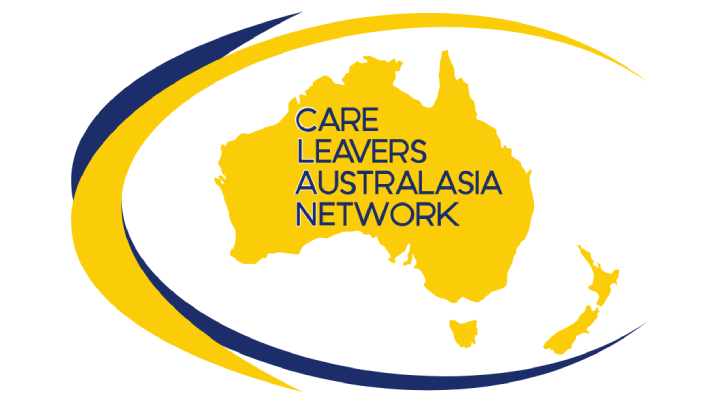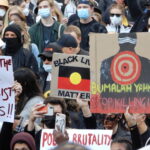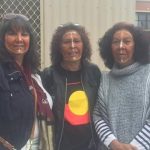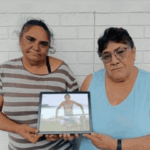The State Is Still Abusing Ex-Child Wards, Via Redress, Just as it Did in Their Youth

As Leonie Sheedy recalls, when the girls who were under state care at the notorious Parramatta Girls Home held a protest in 1969, calling out the conditions they were subjected to by the NSW state, they were sent to Long Bay Gaol.
The irony was the adult facility treated them better than the home.
Also known as Parramatta Training School for Girls, the home that dealt with orphans or children placed in out-of-home care, treated minors, who’d committed no crime, as inmates.
Girls were subjected strict rules, beatings and isolation, which is where male staff routinely raped the children.
Horror stories of abuse at the hands of adults in orphanages, children’s homes, missions, foster care and church organisations led to the Royal Commission into Institutional Responses to Child Sexual Abuse 2013-17, and it found “countless thousands” of kids had been abused in state care.
As part of the inquiry’s recommendations, the National Redress Scheme (NRS) was established on 1 July 2018, and it was to act as a means to provide closure and justice to the estimated 60,000 victim-survivors of institutional child sexual abuse, via financial compensation.
But Sheedy, the chief executive of CLAN (Care Leavers’ Australasia Network), is calling out the fact that the NRS, even after a recent review, is continuing to subject ex-care leavers to an administrative form of abuse, or just straight-out denying their right to seek closure and compensation.
Denying compensation, denying abuse
“Brutality, cruelty, exploitation and humiliation were systemic in orphanages, children’s homes, missions, hostels and foster care as supervision and accountability were non-existent,” Sheedy explained. “Care was outsourced to churches, charities and private individuals left unchecked.”
“The NRS was devised as a response to those findings, but NRS decisionmakers appear to be inconsistent with those findings,” Sheedy told Sydney Criminal Lawyers.
“And despite frequent requests, the NRS has consistently refused to issue statistics regarding former state wards or care leavers.”
An example of this Sheedy relates is that some institutions were found to have subjected girls to “so-called virginity tests”, which the commission found was a form of sexual abuse, as multiple testimonies regarding these procedures applied by doctors made their abusive nature apparent.
However, according to Sheedy, some ex-state wards have had their applications to the National Redress Scheme rejected, as those making the NRS assessment are now determining “virginity tests were not sexual abuse”.
“Wards of the state were committed to the care of the state, who were then legally and morally responsible for their care and protection,” Sheedy continued.
“Despite this, the NRS has rejected applicants on the grounds that the state did not have a responsibility 24/7 if they were raped or molested outside the gates of an institution.”
The NRS post-2024 reforms
The National Redress Scheme provides children who were sexually abused in Australian institutions with recognition of their suffering in care and it holds those institutions that permitted the abuse accountable.
Care leavers can apply for the NRS by filling out an application form. And what’s then offered in the form of redress can involve a compensation payment or “counselling that is confidential and culturally safe” or “a direct personal response, such as an apology, from an institution”.
Those eligible for redress are people born prior to 30 June 2010, who experienced sexual abuse when they were under 18 years of age, while they were in “an institution, on the premises of an institution, or where activities of an institution took place, or by an official of an institution”.
The legislation for the NRS passed federal parliament with bipartisan approval, setting up a scheme that provides compensatory payments that are capped at $150,000 and it runs for a ten year period, so the closing date for seeking redress is 30 June 2027.
And due to a 2021 review of the NRS, the federal government passed amendments in March, so that those in prison can apply, as they’d previously been blocked, and it lowered the threshold for applicants with serious criminal convictions, who must seek special access, being denied redress.
Wrong advice given
CLAN is not the only organisation calling out how the NRS is being applied, as former clients of Knowmore Legal have launched a class action against this centre over the advice it has been giving to those eligible for the NRS.
Knowmore Legal is a government-funded nonprofit firm that provides free legal advice and support to survivors of child sexual abuse. And half its clients are First Nations people.
The class action alleges that Knowmore has been providing advice in regard to the NRS “using standard processes and template documents” that emphasis going with the scheme rather than seeking damages in the courts, which could result in potentially much higher payments.
A recent ABC report on the class action centres around the case of a man, who was contemplating suing the Salvation Army, as he’d been abused over a period of two years by two of its staff.
The suggestion is he could have received a much higher payout than the $43,000 he received from the NRS, if he’d taken legal action against the Salvation Army and the state of Victoria.
And at present, at least 180 former clients are a part of the class action against Knowmore Legal, claiming that it’s likely breached its duty of care by advising clients not to take legal action against institutions and the state.

Set up to fail
Sheedy explained that she’d recently visited a prison to speak with inmates about her organisation, as well as the availability of the redress scheme to them, and she added that while the NRS has now been opened to the incarcerated, some continue to be denied redress.
Other barriers to claiming the NRS, she continued, include that those who’ve been abused in state care have a lack of trust in the authorities, many are not literate as they weren’t educated while in care, and the accounts of poor treatment at the hands of the NRS are putting others off applying.
Key changes that CLAN continues to push for are making the guidelines for decision-making public, that virginity testing claims be accepted, that there should be an indexation on payments to account for inflation and that greater access should exist to data relating to former state wards.
“The barriers to change are obvious in the way the NRS was set up with the various governments and powerful churches making sure the decision-making rules and guidelines were known only to them and the payment matrix was engineered to fit what they were prepared to pay,” Sheedy concluded.
“The general public see only the media headlines and are assured that the matter is in steady hands.”







